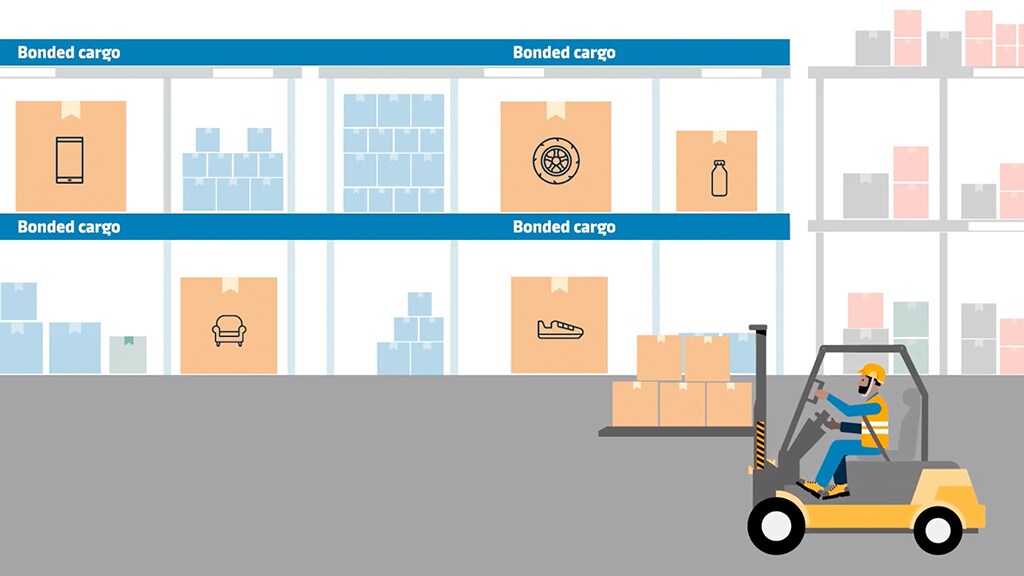A bonded warehouse (or customs warehouse) is a secure storage facility where shippers can store their imported goods without needing to immediately pay import taxes and duties.
To put it another way: when goods are held in bonded warehouses, they’re considered to be still in transit to their final destination. Only when goods are dispatched from the secure area of a bonded warehouse to their final destination, do these fees apply.
These warehouses can be found all over the world and are traditionally operated by governmental authorities or private entities under robust state customs guidelines.
Bonded Warehouse Benefits
There are many advantages for businesses using bonded warehouses, but the most significant benefit is the deferral of import taxes and duties. It enables a business to manage inventory in a more strategic and cost-effective way, ultimately resulting in being able to get the right products to the right market at the right time.
For example, if you import goods from Europe to a non-bonded warehouse in the United Kingdom, you’d be liable to pay UK import duties on those goods when they arrive on UK shores.
But what if the UK’s appetite for your product is far less than the demand seen in mainland Europe? And what if your supply is running out in Europe due to such an eager market?
This scenario could potentially herald the need for you to re-export your goods back to Europe in order to keep your consumers happy. In doing so, you’d then need to pay EU import taxes for those products on top of the UK fees already paid – known as the dreaded ‘double duty’.
However, if you’d originally stored those goods in a bonded UK warehouse – like the East Midlands Gateway Campus – they could be re-exported back to the EU without having to pay UK duties upon arrival.
This level of flexibility could bring about significant tax savings and also contribute towards enhanced commercial performance by being able to seamlessly switch markets depending on demand.
On top of this, bonded warehouses are typically located close to ports and airports, so goods can be exported at speed to take advantage of market conditions.
Another benefit of bonded warehouses is incidentally the flexibility that comes with not switching markets and keeping stock on location. Bonded facilities offer extended storage periods, which means businesses can store goods until market conditions become favourable for their product.
This will reduce the need to lower prices and sell at a loss in order to balance inventory, and is particularly important for seasonal products and in volatile markets. In this case, taxes and duties become applicable when your goods are released to the market from which you are storing.
It’s clear that bonded warehouses offer a number of security, efficiency and flexibility benefits to customers, and utilising them from strategic locations can certainly bring competitive advantages.
By leveraging bonded facilities, businesses can optimise their supply chains, improve inventory management, and ensure compliance with regulatory requirements, all while reaping the financial benefits of deferred duty payments.
To find out more about Maersk’s network of bonded warehouses and more, please click here.
Sign up for our logistics newsletters
Receive news and insights that help you navigate supply chains, understand industry trends, and shape your logistics strategy.
Thank you for signing up
An unexpected error occurred
Sorry but we were unable to sign you up for newsletters.













